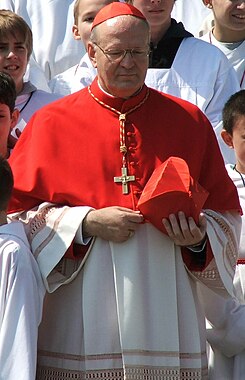- Print ISSN: 2445-2394
- Online ISSN: 2605-3357
- DOI: https://doi.org/10.12800/
vg
Lectori Salutem!

It is with great pleasure that I introduce the first issue of the scientific biannual Journal Vergentis, of the International Chair Innocent III, for the research in History of Law, Ius Commune and Canon Law. This Chair has been founded by the Pontifical Lateran University (PUL), through the Institutum Utriusque Iuris and the Catholic University of Murcia (UCAM), which joined their efforts to create a common structure that aims to promote the study of History of Law, Ius Commune and Canon Law. In order to achieve these objectives, the Chair supports projects of research in its fields of competence; it encourages the writing of doctoral dissertations regarding History of Law, Ius Commune and Canon Law; it simplifies the interchange of teaching experiences and, as a consequence of the achievement of its objectives, it fosters an effective, stable and recognizable editorial policy in accordance with the international standards which regulate the quality and the criteria of the scientific research. It also fosters an interchange of students in the context of their own training plans and it provides doctoral and post-doctoral scholarships.
It also organises international Conferences and research Seminars, in order to create a common ground of discussion between the teachers and students that collaborate with the Chair, who have the opportunity to meet international experts from prestigious universities from all over the world. The first activity of this kind was the International Conference that took place in the eight centennial of the Fourth Lateran Council, convoked by Innocent III in 1215; this council is highly significant in the history of canon and civil law.
The framework of this project, the Journal Vergentis (published both in paper copy and in electronic form), aims to become a space to reflect and make a multidisciplinary research, especially helping the communication between the enthusiasts and the professionals of law, legal history, Roman Law, Ius Commune and Canon Law.
The legal expert of today, frequently overwhelmed by concerns and tasks related to the details and the multitude of the norms in force, runs into many difficulties while searching for an overall picture and the internal logic of the system. But if we focus exclusively on the meticulously regulated details, we run the risk of losing contact with the system as a whole and especially with the rest of reality. The historical-juridical disciplines and Canon Law (a legal system that, also by virtue of his history, is frequently connected to the Holy) offer a wider horizon and they connect every day's legal life with the deepest levels of the human experience. In order to access this historical-legal world, a special competence is required, that has become a true rarity in our cultural world. Hence, it is a great opportunity to open a space for the dialogue between the jurists specialised in different fields. Therefore, we wish a lot of success to the new Journal that takes on this mission. We hope that it becomes an effective instrument for an in-depth scientific analysis and for an exchange of viewpoints between an increasing qualified audience.
Card. Péter Erdő






